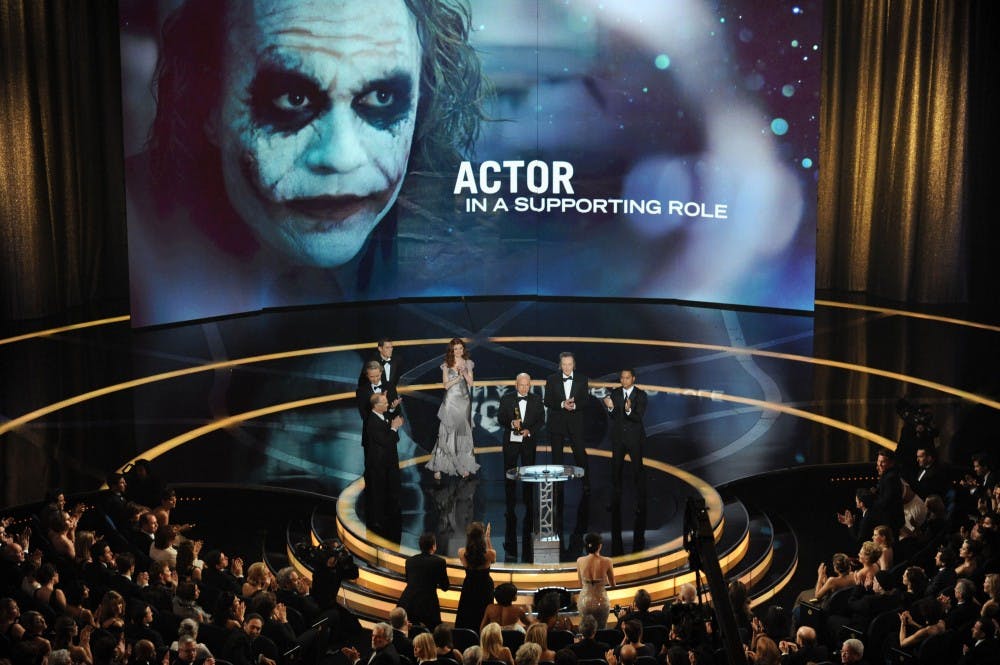Since the early 2000s, it seems as if comic book films are the only goods Hollywood knows how to export. For studios, the genre has proved to be a safe bet as the audience for these films has only grown overtime and almost always bring in huge financial returns. At the halfway mark of 2018, we’ve already seen four entries make it onto the big screen, with at least three more slated for release by the end of the year.
While the massive resurgence in superhero films can be credited to the success of Bryan Singer's “X-Men” (2000) and Sam Raimi’s “Spider-Man” (2002), the longevity of the genre is due to Christopher Nolan’s “The Dark Knight” (2008), a film that would become widely regarded as the pinnacle of the genre.
Prior to “The Dark Knight”'s release, the superhero genre suffered from a series of consecutive critical flops, followed by a pouring of outright hatred from fans. “Fantastic Four” (2005) was a dud, Halle Berry’s outing in “Catwoman” (2004) is better left forgotten and even the beloved “X-Men” franchise sunk to an unexpected low with the disappointing “X-Men: The Last Stand” (2006).
Consequently, there’s no surprise why critics and moviegoers alike latched onto “The Dark Knight” and haven’t let go since. At the time, “The Dark Knight” was a breath of fresh air in a genre that was desperately in need of a savior. Most importantly, it transcended everything a superhero film was supposed to be and set a new standard of expectations future films would have to match. At times, you forget it’s even a “comic book” film, which is its greatest strength.
Since his arrival into mainstream media with 1966’s campy, self titled television show starring Adam West, Batman has endured many live action incarnations. Before Nolan's, Tim Burton’s iconic take on the hero in both "Batman" (1989) and "Batman Returns" (1992) was the definitive onscreen version of the character. However, in the mid '90s the character hit rock bottom in Joel Schumacher's ill-fated adaptions starring Val Kilmer and George Clooney as the titular role. Even so, 2005’s “Batman Begins” was anything unlike its predecessors.
Nolan’s take on the millionaire playboy turned masked vigilante was dark and gritty, with real stakes on the line. While its source material was outlandish, Nolan’s version of Gotham City was always grounded in a reality that mirrored our own. After teasing the entrance of Batman's greatest foe, the Joker, at the end of "Batman Begins," Nolan’s untitled sequel already had a lot to live up to. Luckily, he put his faith in the late Heath Ledger, a risk that would grant us one of the most memorable performances of all time.
As history would have it, Nolan’s gamble proved to be his biggest gain. Immediately after its release, "The Dark Knight" was a critical and commercial sensation. As the first superhero film to gross over $1 billion, “The Dark Knight" did for comic book films what James Cameron’s “Aliens" did for sci-fi films. From that point forward, the Academy could no longer throw the superhero genre bones disguised in the form of nominations exclusively in technical achievements. Ledger's turn as the Joker proved that actors in comic book films should be taken just as seriously as actors in traditional dramas or thrillers. After all, "The Dark Knight" was both. Ten years later, Ledger is still the only actor to ever win an Oscar for a superhero film.
Today, it’s become apparent that superhero fatigue isn’t coming anytime soon. Marvel Studios has found a formula that works for their movies and recently celebrated a record breaking accomplishment with “Avengers: Infinity War” that was released in April. Still, despite the studio's earned amount of praise, most entries in the Marvel Cinematic Universe tend to follow the same beat and are comfortable doing so.
DC Studios, on the other hand, continues to suffer under the hands of its greatest success. Recent films like “Suicide Squad" (2016) and “Justice League" (2017) pale greatly in comparison to Nolan’s masterpiece, and the overall tone of the DC Extended Universe has yet to become consistent. While the success of 2017's “Wonder Woman” and this year's upcoming "Aquaman” could send DC in the right direction with critics for the long haul, it won’t happen overnight.
By raising the bar and having the guts to play with fire, “The Dark Knight” has become the touchstone of the superhero genre. Even until the end, future comic book films will always be measured according to its greatness. At the end of the day, “The Dark Knight” wasn’t just a great comic book film, it was great film, period.
Give it a re-watch. Yes, it’s as great as you remember.

